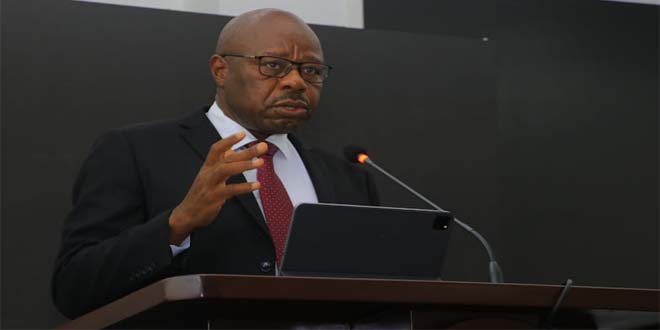Kenya experienced more than 1.2 billion cyber threats in the three months leading up to December. 123 million threats were detected in the previous quarter, showing a 943% increase from the previous period.
The Communications Authority of Kenya’s latest report says that the increase in cyber threats is due to the country improving its ability to monitor these threats. The report also mentions that there has been an increase in exploiting weaknesses in computer systems, which is fueled by the growing use of internet devices.
In 2019, there were 13.2 million cases of malware attacks, 9.7 million cases of brute force attacks, 0.07 million cases of web application attacks, and 0.05 million cases of mobile application attacks.
“In response to the threats, the National Cyber Security Centre issued 8.06 million advisories in the period under review,” the report reads. It was a 44.4% increase from the 5.6 million issued in the previous quarter.
“During the period, system misconfiguration attacks were the most prevalent, which aligns with the with global trends in cyber threat activity where malware attacks, and more specifically ransomware, were most rampant,” states CA
Edward Kisiang’ani, from the broadcasting and telecommunications sector, stated that the advisories were aimed at warning and guiding different actors in the critical infrastructure ecosystem about upcoming attacks and what actions they should take.
Main targets are Internet Service Providers (ISPs), cloud service providers, government, and the education sector. He said if cyber-attacks on those sectors were successful, it would have a huge impact on the economy.
In 2023, Kenya experienced 860 million cyber-attacks, the highest number ever recorded. The country’s critical information infrastructure (CIIs) was targeted by these cyber-threats, which were more frequent, sophisticated, and on a larger scale.
79% of the attacks resulted from cyber criminals exploiting weaknesses in organizations’ internal controls, system procedures, and information systems to gain unauthorized access to computer systems.
The government is improving threat detection systems and training key personnel to handle cyber security threats in the country.
“In light of the increased complexity and sophistication of cyber threats, we also remain at hand to collaborate with countries in the region in mitigating cross-border cyber threats within the global realities we all experience,” said the PS.
He spoke in Nairobi at the opening ceremony of the first African meeting to prepare for the 2025 World Telecommunications Development Conference. The ITU hosts the forum to promote policy and infrastructure changes that will help bridge the digital innovation gap faster.
Source: The star
 InfoSecBulletin Cybersecurity for mankind
InfoSecBulletin Cybersecurity for mankind





